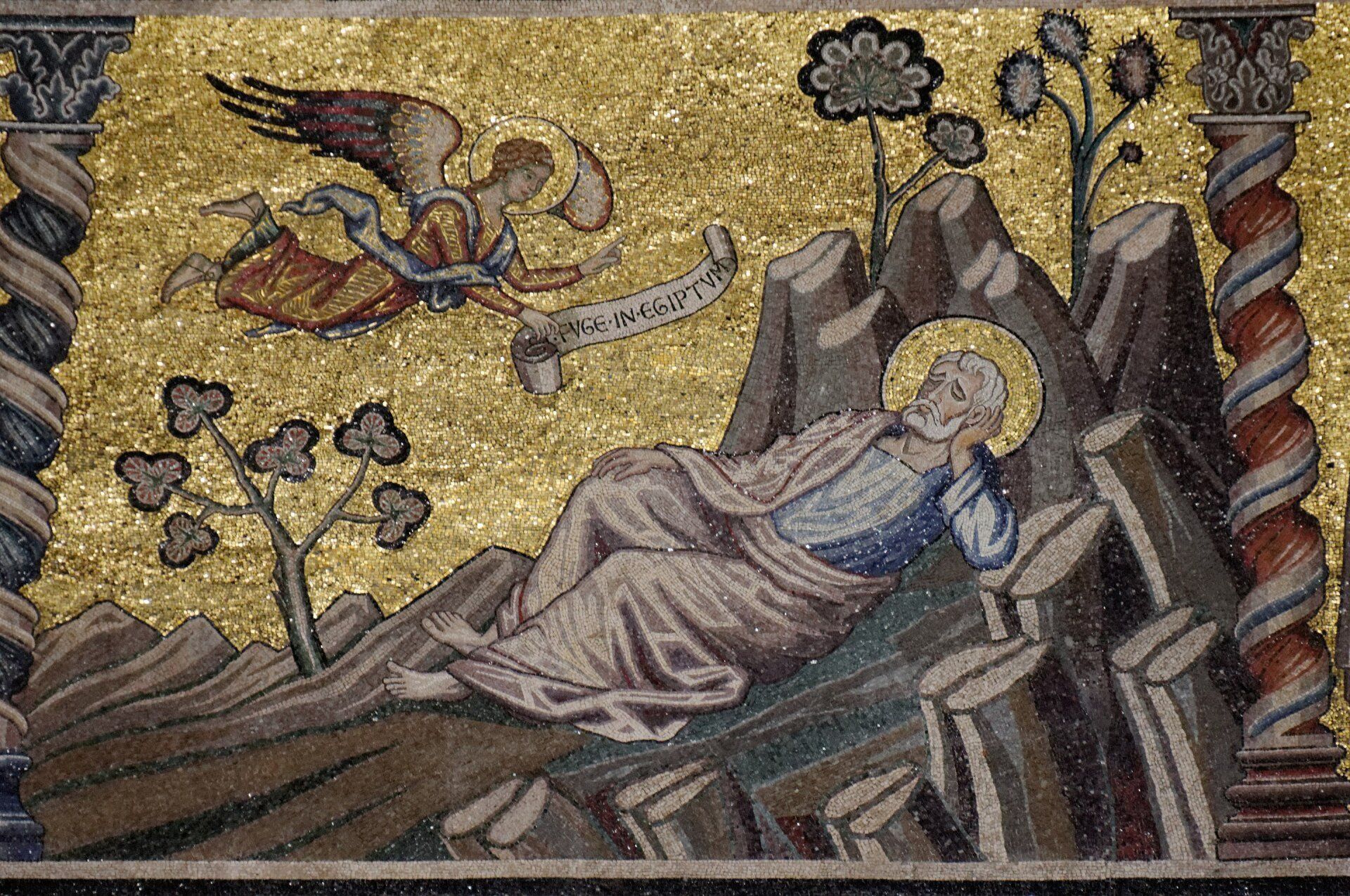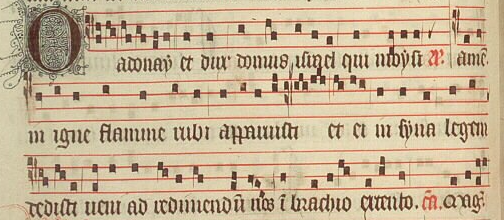Message of Abbot Paul - Sunday 18th December 2022
Abbot Paul • December 18, 2022


O Adonai, et Dux domus Israel,
qui Moysi in igne flammae rubi apparuisti,
et ei in Sina legem dedisti:
veni ad redimendum nos in brachio extento.
O Adonai, and leader of the House of Israel,
who appeared to Moses in the fire of the burning bush
and gave him the law on Sinai:
Come and redeem us with an outstretched arm.
The O Antiphon for 18th December begins with an ancient Hebrew word for God, Adonai, a word we first find used in the episode of the call of Moses at the Burning Bush. It is not the name by which God revealed himself to Moses, but rather a word that could be translated into Latin as Deus or Dominus. However, the ancient Hebrew word is kept, placing emphasis on God as giver of the law, leader and guide of the House of Israel. As God saved Israel from slavery in Egypt, so Jesus the Messiah, giver of the new law of love, will redeem God’s people by extending his arms on the cross. We ask him urgently to come and redeem us now.
The readings on the Fourth Sunday of Advent are dedicated to the Annunciation and Incarnation of the Son of God in the womb of the Blessed Virgin Mary by the power of the Holy Spirit. Today we read from Matthew, (Mt 1: 18-24), the Annunciation to Matthew, rather than to Mary. In fact, when the angel of the Lord appears to Joseph in a dream, Mary has already conceived and is carrying Jesus in her womb. Joseph doesn’t want to cause a stir or make things difficult Mary, so he has decided to divorce her quietly so as not to draw attention to her situation, but in a small town like Nazareth? Yet, just when he’s made this decision, the angel appears to him in a dream and explains exactly what’s going on, that Mary has conceived by the power of the Holy Spirit, that the child is of God and that he must take Mary to his home and take on the role of parental care for Mary and the boy. He is to name the boy Jesus, because he will save his people from their sins. Proof for all this is in the writings of the prophets. In fact, Mary is a virgin still and will remain so, and her son is Emmanuel, God-is-with-us. On waking, Joseph carries out to the letter what God has asked of him, becoming a model husband and father, protector of the Holy Family, obedient to the end, a role model for us all.
Here is the text of the Gospel:
“This is how Jesus Christ came to be born. His mother Mary was betrothed to Joseph; but before they came to live together, she was found to be with child through the Holy Spirit. Her husband Joseph; being a man of honour and wanting to spare her publicity, decided to divorce her informally. He had made up his mind to do this when the angel of the Lord appeared to him in a dream and said, ‘Joseph, son of David, do not be afraid to take Mary home as your wife, because she has conceived what is in her by the Holy Spirit. She will give birth to a son and you must name him Jesus, because he is the one who is to save his people from their sins.’ Now all this took place to fulfil the words spoken by the Lord through the prophet:
The virgin will conceive and give birth to a son
and they will call him Emmanuel,
a name which means ‘God-is-with-us.’ When Joseph woke up, he did what the angel of the Lord had told him to do: he took his wife to his home.”









